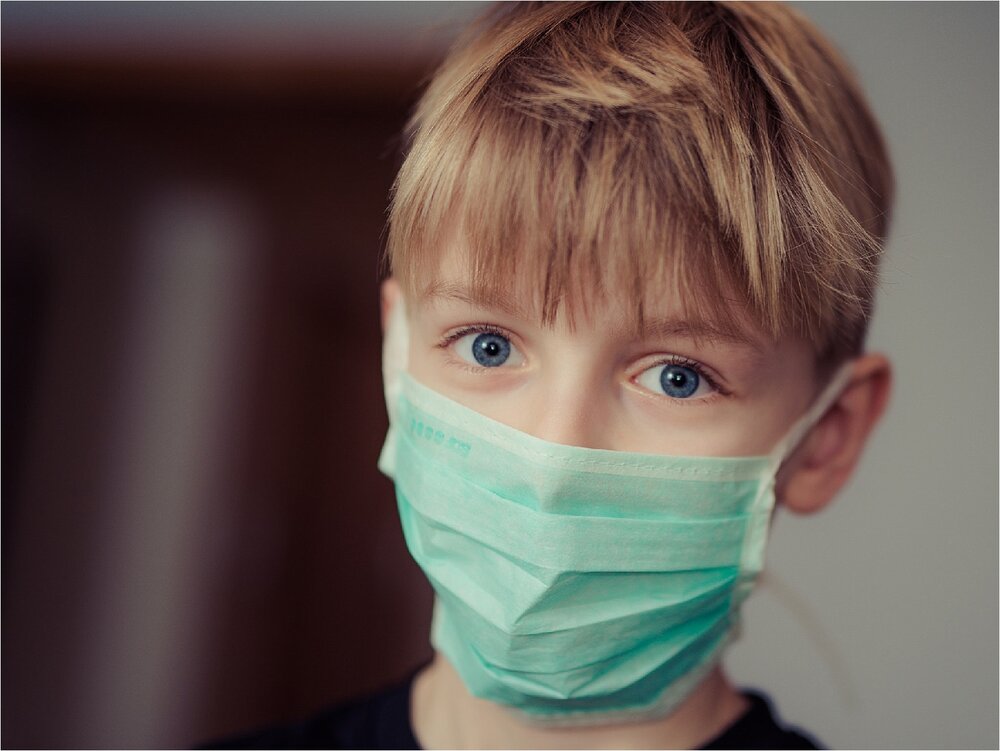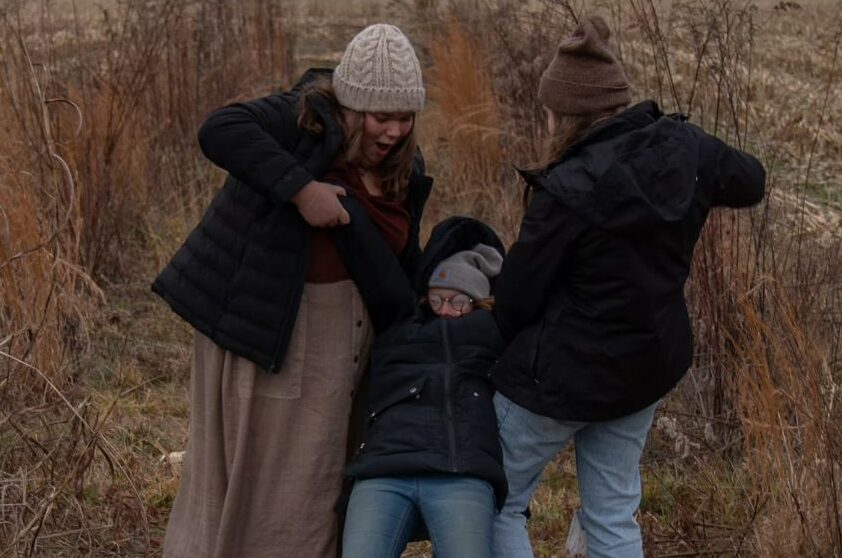COVId-19 AND THE ORPHAN CRISIS

Struggling Financially:
Families who were already struggling financially are now in an even more critical situation. Parents may not be able to work and therefore may not be able to pay rent, pay bills, or provide food.
High Stress:
When humans are living under high stress, our brains and reactions often cannot function at a stable rate, which can put an already struggling adult in a situation to perhaps take out their stress on their children in an unsafe way.
Lack of Mandatory Reporters:
Teachers, school employees, and daycares are all mandatory reporters for abuse. With schools being closed, the numbers of calls to abuse hotlines have already dropped significantly. For example, hotline tips to the Texas Department of Family and Protective Services fell from 11,179 a week in late February to 9,344 a week in mid-March.
Increase In Abuse And Domestic Violence:
There has already been an increase in abuse cases and deaths from abuse due to the increased stress on families.
Limited Access To Services:
Access to many services that parents utilize is now more difficult due to closures. This includes accessing food, drug rehabilitation programs, and parenting classes.
FOSTER Home Closure:
Some foster families are reevaluating whether to keep their homes open during this time due to fear of exposure to COVID-19, causing children to be without placements. There is a fear of not knowing what a child has been exposed to prior to coming into their home, especially in families that have someone who is high risk for the disease. In some areas, foster families are still required to do face-to-face visits with biological families and risk exposure in crowded CPS offices.
Changes To Visitation:
Normally, children in the foster system have supervised, face-to-face visits with bio family. Some areas are still having face-to-face visits with family risking exposure to COVID-19 while others have moved to virtual visits, which are largely unsupervised. Both scenarios can cause stress for all parties involved.
Lack Of Protection For Case Workers:
While a portion of child protection work has moved online, there are still some things that must be done in person, such as placements, removals, and checking on at risk families. Often, case workers who must visit these homes do not have the proper equipment to protect them or the families that they are visiting. This has led to case workers in multiple states testing positive for COVID-19, and puts more strain on an already underserved position.
Slow Down In Court Systems:
With courts closing around the country, many families are left in limbo in the middle of their cases. Scheduled adoptions have been put on hold, and families who were close to reunification must now wait.
Group Homes/Residential Treatment Centers:
Many homes with large numbers of children have no way to separate or care for them if one gets sick. Also, as more staff fall ill or go into quarantine, homes become understaffed and caring for these vulnerable children becomes even more difficult.
Non-Profits Struggling Financially:
Many non-profits that are serving vulnerable populations (ex: food banks, mentoring services, housing programs) have lost funding and donors due to the economy and the inability to host fundraisers.
International Adoption:
Families who were about to bring their children home are now being forced to stay in the states and wait. An expectant parent who has gone through possibly years of paperwork and waiting is likely feeling a lot of sadness and pain during this time. Imagine how heartbreaking it would be to get the news that your wait is over only to have everything close and be forced to wait an extended and undetermined amount of time to become a family.
ways to heLP YOU CAN MAKE A DIFFERENCE
- Become a CASA –
Many agencies have put training online! Check with your local CASA to see if they are offering online training.
- Become a foster family – There is a huge need for foster families, now more than ever. Some agencies are working to offer online training to become a foster parent! Ask your local agencies if they are offering this in your area. Please reach out to us if you need help connecting with a local agency at [email protected].
- Report abuse if you see it – Mandatory reporters are not seeing children as often so reports of abuse have fallen. If you know of cases of abuse, report it to the child abuse hotline. Abuse hotline: 1-800-422-4453.
- Check on families who have been reunified – If you know of families that had children in foster care and have reunified, check in on them. They may be struggling right now and could use support.
- Babysitter certification – While you may not be able to babysit in this current situation, ask local agencies about getting certified to babysit in the future. Get ahead by getting all of the training and paperwork completed now.
- Support youth shelters and group facilities – Support them financially and ask if they have specific needs you can provide.
- Teach online lessons to kids – If you have a specific skill that you could record or teach online (ex: guitar lessons, language learning, or even reading a story), this could give parents a break and teach kids a valuable new skill.
- Buy diapers for diaper banks – Diaper banks are very low on supplies and could really use diaper donations.
- Drop off art projects or activities at the door of adoptive or foster families – Kids with trauma or special needs may struggle with their new routines. Fun activities can help parents thrive in this trying time.
- Support people who are fostering – Check in with the people you know who are foster parents. See what their needs are and how you can help. Offer specific things that you are able to do from a distance (dropping off groceries, ordering take out for them, mailing a gift card, etc.)
- While grocery shopping, avoid buying WIC products and overbuying – Families with WIC benefits are only approved to purchase items marked as WIC – avoid buying those items if at all possible. In general, avoid overbuying products, in particular, diapers, wipes, and toilet paper. Many families using WIC benefits shop at the beginning of the month so if possible, avoid shopping on the 1st – 3rd of the month.
- Take care of yourself! – Here is a grief exercise (created by therapist Christine Hoover) that can help you name your feelings. Check it out here!
- Stay home! – This one may seem obvious but the better we are at social distancing and flattening the curve, the sooner we can get back to life outside of our homes. We know this is not possible for essential personnel (thank you for your service!) but for everyone able, stay home. @ThatsNotCancelled is an account that is sharing creative ways to spend time together as family during this season.
- Support non-profits financially – Many non-profits will struggle during this time while continuing to do front line work to help people in need. Don’t let your charitable giving be the first place you cut costs. If you are unable to donate, share their work with your community so they know how to help.
- Online support group for foster/adoptive families – There have been Facebook and online groups started to support foster and adoptive families during this time. Join one if you are needing an outlet of like-minded people.
-
- Care for families whose adoptions are held up – There’s not a lot we can do for those families but send them kind words and prayers and lament with them. Don’t try to fix them or minimize their pain, just be there for them.
- Volunteer at local food banks – Food banks are in desperate need of volunteers. If you are healthy and not high risk, you may consider volunteering with a local organization.
- Amazon Wishlists – There are many organizations who have created Amazon wishlists to provide immediate needs for families. Here are a few options: Foster Village, Olive Crest, Helping Hand Home. You can also check with local agencies to see if they have created one. Make an Amazon Wishlist for your friends who need a little extra help in this season and send it to your community group, friends, and family!
- Providing grocery delivery – Check with families that you know that may be struggling or who are immunocompromised to see if you can deliver groceries for them. Residential Treatment Centers and Group Homes may also be in need of supplies.



